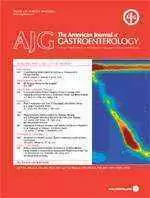- Addisons Disease
- Alopecia
- Anxiety and Depression
- Ataxia
- Attention Deficit Disorder / ADHD
- Autism and Celiac Disease
- Autoimmune Hepatitis / Chronic Active Hepatitis
- Bird Fancieris Lung
- Brain White-Matter Lesions
- Cerebellar Atrophy
- Chronic Fatigue Syndrome (myalgic encephalomyelitis or ME, PVS, post viral fatigue syndrome or PVFS)
- Crohns Disease
- Congenital Heart Disease
- Cystic Fibrosis
- Dental-Enamel Hypoplasia
- Dyspepsia
- Epilepsy (with or without cerebral calcification)
- Farmeris Lung
- Fibromyalgia and Celiac Disease
- Fibrosing Alveolitis
- Follicular Keratosis
- Gall Bladder Disease
- Gastroparesis
- Head Aches (Migraine)
- IBD - Irritable Bowel Disease
- Impotency
- Infertility
- Inflammatory Bowel Disease
- Lung Cavities
- Multiple Sclerosis and Celiac Disease
- Myasthenia Gravis
- Pancreatic Disorders / Exocrine Pancreatic Insufficiency
- Peripheral Neuropathy
- Polymyositis
- Polyneuropathy
- Primary Biliary Cirrhosis
- Pulmonary Hemosiderosis
- Recurrent Pericarditis
- Sarcoidosis
- Schizophrenia / Mental Problems and Celiac Disease
- Scleroderma
- Short Stature, Delayed Puberty
- Small-Intestinal Adenocarcinomas
- Spontaneous Abortion and Fetal Growth Retardation
- Systemic Lupus Erythematosus
- Thrombocytosis (Hyposplenism)
- Thrombocytopenic Purpura (ITP)
- Thyrotoxicosis
- Vasculitis
- Vitamin K Deficiency
-
Welcome to Celiac.com!
You have found your celiac tribe! Join us and ask questions in our forum, share your story, and connect with others.
-
Celiac.com Sponsor (A1):
Celiac.com Sponsor (A1-M):
-
Get Celiac.com Updates:Support Our Content
-
Record is Archived
This article is now archived and is closed to further replies.

By Scott Adams

By Scott Adams •
Reviewed and edited by a celiac disease expert.A List of Diseases/Disorders Probably Associated With Celiac Disease
User Feedback
-
Get Celiac.com Updates:Support Celiac.com:
-
About Me
Scott Adams was diagnosed with celiac disease in 1994, and, due to the nearly total lack of information available at that time, was forced to become an expert on the disease in order to recover. In 1995 he launched the site that later became Celiac.com to help as many people as possible with celiac disease get diagnosed so they can begin to live happy, healthy gluten-free lives. He is co-author of the book Cereal Killers, and founder and publisher of the (formerly paper) newsletter Journal of Gluten Sensitivity. In 1998 he founded The Gluten-Free Mall which he sold in 2014. Celiac.com does not sell any products, and is 100% advertiser supported.
-
Celiac.com Sponsor (A17):
Celiac.com Sponsor (A17):
Celiac.com Sponsors (A17-M):
-
Related Articles
 Abdominal Distention (children) Abdominal Pain, Steatorrhea Anemia - Folate-Deficiency / Iron Deficiency / Pernicious Arthralgia or Arthropathy Arthritis - Rheumatoid Carcinoma of the Oropharynx, Esophagus, and Small Bowel Collagenous Sprue Dermatitis Herpetiformis Diabetes (Type 1) and Celiac Disease Diarrhea Down Syndrome Enteropathy-Associated T-cell Lymphoma Failure to Thrive (children) Hypertransaminasemia IBS - Irritable Bowel Syndrome IgA Deficiency IgA Nephropathy Kidney Disease Liver Disease Low Bone Mass and Celiac Disease Microscopic Colitis / Collagenous Colitis Nerve Disease and Celiac Disease Osteomalacia, Osteoporosis and...
Abdominal Distention (children) Abdominal Pain, Steatorrhea Anemia - Folate-Deficiency / Iron Deficiency / Pernicious Arthralgia or Arthropathy Arthritis - Rheumatoid Carcinoma of the Oropharynx, Esophagus, and Small Bowel Collagenous Sprue Dermatitis Herpetiformis Diabetes (Type 1) and Celiac Disease Diarrhea Down Syndrome Enteropathy-Associated T-cell Lymphoma Failure to Thrive (children) Hypertransaminasemia IBS - Irritable Bowel Syndrome IgA Deficiency IgA Nephropathy Kidney Disease Liver Disease Low Bone Mass and Celiac Disease Microscopic Colitis / Collagenous Colitis Nerve Disease and Celiac Disease Osteomalacia, Osteoporosis and...
- Read Full Article...
- 3 comments
- 32,711 views
 Gluten intolerance often presents itself in ways unexpected, including several common skin conditions. Ranging in severity from dermatitis herpetiformis to dry skin, avoiding gluten may have more to do with your plaguing skin concerns than you imagined.
Gluten intolerance often presents itself in ways unexpected, including several common skin conditions. Ranging in severity from dermatitis herpetiformis to dry skin, avoiding gluten may have more to do with your plaguing skin concerns than you imagined.
Here are some common dermatological concerns associated with celiac disease:
Dermatitits Herpetiformis—This painful, blistery condition can be very stressful, especially when misdiagnosed. An inflamed, itchy rash, dermatitis herpetiformis begins as tiny white filled blisters or red spots around hair follicles. Trying to hide or disguise DH, as well as trying to treat it when misdiagnosed can be incredibly stressful for a person. Eczema—Eating a gluten-free diet is becoming an increasingly popular mode of treatment for eczema...
- Read Full Article...
- 21 comments
- 189,092 views
 Celiac.com 03/07/2011 - Although the HLA-DQ locus is clearly the strongest genetic factor influencing the development of celiac disease, it is certainly possible that other genes play supporting roles. Identifying these genes could help shed light on why certain genetically susceptible individuals develop celiac while others can happily (and healthily) eat gluten.
Celiac.com 03/07/2011 - Although the HLA-DQ locus is clearly the strongest genetic factor influencing the development of celiac disease, it is certainly possible that other genes play supporting roles. Identifying these genes could help shed light on why certain genetically susceptible individuals develop celiac while others can happily (and healthily) eat gluten.
NALP1 and NALP3 are genes that encode proteins involved in assembling the inflammasome, which is exactly what it sounds like – a complex of proteins that promotes inflammation. Gain-of function mutations – those that render the protein perpetually active, rather than responsive to activating signals – in NALP3 are known to cause autoinflammatory diseases, and NALP1 polymorphisms have been associated with the autoimmune disea...
- Read Full Article...
- 0 comments
- 7,968 views
 Celiac.com 08/16/2019 - A recent study looked at nine possible factors in children that might contribute to the development of celiac disease later in life. The study found a connection between skim milk consumption, and vitamin D drop use for more than 3 months, and later development of celiac disease. It also found evidence to support earlier data that early life exposure to antibiotics and early life infection, especially ear infection, are also associated with the development of celiac disease in children.
Celiac.com 08/16/2019 - A recent study looked at nine possible factors in children that might contribute to the development of celiac disease later in life. The study found a connection between skim milk consumption, and vitamin D drop use for more than 3 months, and later development of celiac disease. It also found evidence to support earlier data that early life exposure to antibiotics and early life infection, especially ear infection, are also associated with the development of celiac disease in children.
Read more in Clinical and Experimental Gastroenterology
This study and several others point to the importance of the following risk factors in the development of celiac disease. Other studies have found factors that may contribute to celiac disease.
The Te...
- Read Full Article...
- 9 comments
- 25,275 views
-
Recent Activity
-
- ZandZsmom replied to dovahgolzseyol's topic in Gluten-Free Foods, Products, Shopping & Medications5
-
- dixonpete commented on dixonpete's blog entry in Pete Dixon2
-
- trents replied to jlp1999's topic in Celiac Disease Pre-Diagnosis, Testing & Symptoms5
Awaiting diagnosis
I would ask for a total IGA test (aka, Immunoglobulin A (IgA) and other names as well) to check for IGA deficiency. That test should always be ordered along with the TTG IGA. If someone is IGA deficient, their individual celiac IGA test scores will be artificially low which can result in false negatives. Make sure you are eating generous amounts of gluten... -
- jlp1999 replied to jlp1999's topic in Celiac Disease Pre-Diagnosis, Testing & Symptoms5
Awaiting diagnosis
There was not a total IGA test done, those were the only two ordered. I would say I was consuming a normal amount of gluten, I am not a huge bread or baked goods eater -
- trents replied to jlp1999's topic in Celiac Disease Pre-Diagnosis, Testing & Symptoms5
Awaiting diagnosis
Were you consuming generous amounts of gluten in the weeks leading up to the blood draw for the antibody testing? And was there a Total IGA test done to test for IGA deficiency?
-








Recommended Comments